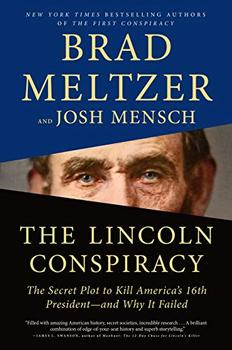Reading Guide Questions

Please be aware that this discussion guide will contain spoilers!
-
In 1856 Congressman Preston Brooks nearly beats Senator Charles Sumner to death on the floor of the United States Congress. The authors maintain this level of violence "serves to illustrate…the United States [was] a deeply divided nation." Some would argue the United States is currently deeply divided as well. Do you think the country is as split as it was in the 19th century? In what ways is the current situation similar to the pre-Civil War era, and in what ways is it different, in your opinion?
- The authors state, "In the nineteen century, countywide and statewide political races are huge affairs, generating enormous local interest, turning out big crowds, and dominating newspaper coverage." Do you think modern political races generate the same level of interest as they did back then? Why or why not? Do you feel anything can be done to involve more citizens in the process?
- Many writers of the day comment on Lincoln's appearance, using words such as "ungainly," "uncomely," and "ugly." Do you think a candidate's looks play a role in their success? Why or why not?
- Lincoln becomes known as the Rail Splitter. The authors claim that "Even back then, branding mattered." Do you believe this to be true? In what ways can this kind of brand help or hurt a candidate, in your opinion? Do you think branding is as important today? What political "brands" do you recall being effective in your lifetime?
- Did you learn anything new about Lincoln in the book? Did your opinion of him change at all as a result of reading The Lincoln Conspiracy?
- Because the Republican convention was in Chicago, Lincoln's campaign team decides to capitalize on his "homefield advantage" by printing duplicate tickets to the event and organizing a large group of supporters to cheer loudly every time his name was mentioned. What did you think of this tactic?
- Why do you think Lincoln, a relatively unknown politician, garners enough popular support to become president?
- Did you learn anything new about the time period covered in the book? Did anything surprise you? Is there anything you wished the authors had talked more about?
- Lincoln appointed people to his cabinet that he ran against (his "Team of Rivals"). In what ways do you think this was a wise decision? How might it have hampered him?
- Do you believe Lincoln would have eventually issued the Emancipation Proclamation if the South hadn't seceded from the United States?
- In his farewell speech on departing his hometown, Lincoln says he leaves with "a task before me greater than that which rested upon Washington." Do you think this is true? Do you think Lincoln could have done anything to prevent the Civil War?
- Pinkerton meets Ferrandini, later writing, "Even I myself felt the influence of the man's strange power…I felt strangely unable to keep my mind balanced against him." What makes some individuals so persuasive? History is filled with similar individuals. Are there modern examples you can name? How do we guard against undue influence?
- Of the many historical figures referenced throughout the book, who did you know the most about beforehand? Who did you know the least about? Of those you knew, did your opinion about them change in any way? Is there anyone whose life you were prompted to explore further?
- Soon after states begin to secede, the federal government begins debating about what to do about federal properties in the South. Some think US troops should be removed immediately so talks about reconciliation can begin, while others think it will be viewed as a surrender and will encourage other states to secede. What are your thoughts about this? Do you think one approach was more realistic than the other?
- In one speech Lincoln says he often ponders "what great principle or idea it was" that kept the nation together. What do you think keeps this nation of disparate people unified?
- Have you read the authors' other "conspiracy" books (The First Conspiracy, The Nazi Conspiracy). If so, how does this one compare? Are there other books about Lincoln and the Civil War you'd recommend?
- There was a lot of debate about Lincoln entering Baltimore early and in disguise. Colonel "Bull Head" Sumner calls it a "damned piece of cowardice" and wants to simply supply Lincoln with a large military company for protection. What do you think would have happened had Lincoln followed Sumner's advice? Were there other alternatives that weren't considered?
- At various points in the war, "Lincoln declared martial law, suspended habeas corpus, and sent soldiers to arrest scores of Marylanders for advocating secession, including state legislators and prominent newspaper editors." Did these actions surprise you? Do you feel they were necessary? Under what circumstances do you feel such actions could be taken today?
Unless otherwise stated, this discussion guide is reprinted with the permission of Flatiron Books. Any page references refer to a USA edition of the book, usually the trade paperback version, and may vary in other editions.







